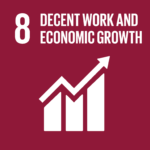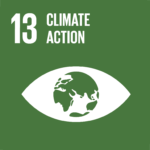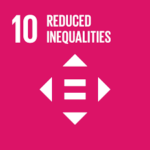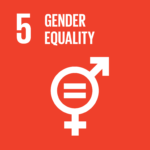Our Annual Meeting format plan—alternating annually between virtual and in-person meetings—represents positive climate action and equitable learning opportunities for member press staff. Our virtual meetings lessen the impact of global travel and lower cost barriers to participation. At in-person conferences, we decrease materials usage with online-only programs and linen-less banquet tables, and we ask attendees to bring their own tote bags rather than manufacturing new ones.
Relevant SDG’s














